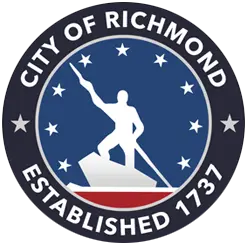The Public History & Culture Program Manager is a journey-level position responsible for complex tasks and medium-to-large sized projects for the identification, preservation, and development of significant historical, cultural, and economic resources in the City of Richmond.
Essential Duties and Responsibilities:
- Act as staff for the City's History and Culture Commission (HCC)
- Provide project management oversight for historic and cultural priority initiatives
- Compile an inventory of significant historical, cultural, and economic resources in the City of Richmond
- Establish and manage a formal City historical marker program
- Prepare a full inventory of street, bridge, or other public space names associated with the Confederate States of America or enslavers, and outline a process for the renaming of such locations
- Facilitate public awareness of City history, culture, and undertakings involving historic or cultural sites
- Prepare agendas, staff reports, and minutes for the HCC
- Prepare reports and present findings to other boards, commissions, and Council
- Create publications, presentations, and content for website
- Prepare and implement strategic and master plans
- Prepare, submit, and administer grants, contracts, and programmatic agreements
- Prepare, evaluate, and award requests for proposals
- Collaborate with the Office of Strategic Communications and Civic Engagement to organize and facilitate meetings and public engagement activities
- Coordinate, promote, and hold various public events, including public input sessions, workshops and educational programs
- Prepare, distribute and update promotional materials for City-sponsored history and culture installations, events, and programs
- Initiate press and public relations communications to the public, media, and other history and culture programs
Supervision:
- Exercised: typically does not supervise
- Received: typically reports to a Director, Deputy Director, or Senior Manager
Qualifications:
- Bachelor's degree in public history, architectural history, art history, history, political science, sociology, public policy, public administration, urban planning, architecture, community development, or field related to the assignment
- Requires two (2) years of experience or one (1) year of experience and an advanced degree
- An equivalent combination of training and experience (as approved by the department) may be used to meet the minimum qualifications of the classification
Preferred Qualifications:
- A Master's degree in history, art history, political science, sociology, public policy, architecture, urban planning, urban design, or landscape architecture
- Three (3) years of experience working for a history, preservation, or cultural organization, municipal or state public history-related program or similar position that includes aspects of program planning, execution, and evaluation
- Experience working for local government in an urban environment
Knowledge, Skills, and Abilities:
- Advanced knowledge of the theory, principles, practices, and procedures of public history and culture programs
- Advanced knowledge of current issues and initiatives that involve engaging diverse groups on a local, regional, and national basis
- Intermediate knowledge of federal, state, and local historic preservation laws and practices and how to coordinate with the State Historic Preservation Office, National Park Service and Advisory Council for Historic Preservation
- Intermediate knowledge of architectural styles, techniques, and typologies
- Basic knowledge of principles, methods, and practices of land use planning and zoning, and how they affect each other
- Basic knowledge of state and local land use laws and zoning codes
- Basic knowledge of principles, methods, and practices of economic development, affordable housing, urban design, environmental planning, and brownfields redevelopment
- Developing and implementing history or cultural master plans
- Working with government or non-profit boards or commissions
- Preparing reports and presenting findings to boards, commissions, and councils
- Organizing and facilitating meetings and public engagement activities, especially with traditionally underrepresented groups
- Writing and administering grants, contracts, and memorandums of agreement (MOAs)
- Preparing and administering operating and capital budgets
- Preparing, evaluating, and awarding requests for proposals
- Establishing and applying historic preservation and design standards
- Creating publications, presentations, and content for websites
- Ability to thrive in a fast-paced, high-stakes, large and diverse political environment and adapt and improvise as conditions change
- Ability to think critically, using logic and reason to identify solutions
- Ability to communicate clearly and concisely, both in writing and speech
- Ability to facilitate discussion and debate and exhibit excellent interpersonal communication in order to resolve conflicts

